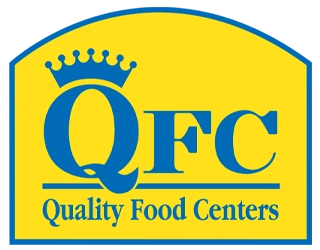
QFC is a grocery store chain in the food & beverage industry. They have a Boost membership program for additional savings and a new time-saving shopping option with recommended items. They also provide services like pharmacy, pickup and delivery, and shipping.
COMPANY LINKS
TAGS
- DEI |
- ESG |
- Pride Sponsor
Updated 1 year ago
How woke is QFC?
Introduction
Quality Food Centers (QFC), a subsidiary of The Kroger Co., has established itself as a prominent grocery retailer in the Pacific Northwest. Over the years, QFC has increasingly aligned with progressive social agendas, focusing on diversity, equity, and inclusion (DEI) policies, LGBTQ+ initiatives, and other progressive causes.
This review delves into QFC’s corporate strategies and highlights how the brand’s involvement in these areas impacts its perception among consumers seeking “woke-free” brands.
Financial Contributions to Progressive Causes
While QFC does not explicitly detail financial contributions to specific progressive causes, as a division of Kroger Co., its policies and corporate behaviours reflect broader corporate trends. Kroger, QFC’s parent company, has been noted for supporting LGBTQ+ initiatives, though precise donation amounts or political contributions to these causes are not readily available. However, QFC’s visible support for Pride celebrations and other LGBTQ+ initiatives is a financial commitment to these causes.
One key example is QFC’s publicized involvement in Pride-related activities, as seen through its official Pride page. This page highlights the company’s advocacy for LGBTQ+ rights and visibility. This aligns with Kroger’s broader push for inclusivity, a shared corporate culture of progressive advocacy.
Prioritization of DEI Policies
QFC follows Kroger’s lead regarding Diversity, Equity, and Inclusion (DEI) policies. Kroger has actively prioritized DEI through initiatives like the DEI Advisory Council, which was established to foster inclusivity within its workforce. As a regional branch of Kroger, QFC likely adheres to similar guidelines, as evidenced by its promotion of Pride and diversity initiatives.
Moreover, DEI efforts are evident in QFC’s celebration of diversity through various promotional campaigns. For example, the company’s Diversity and Inclusion page showcases its commitment to creating an inclusive environment that welcomes employees and customers from all backgrounds.
While specific hiring quotas or affirmative action policies were not disclosed, the company’s public messaging on diversity indicates a focus on identity-based inclusivity rather than merit-based systems. This emphasis on DEI alienates consumers who prioritize merit over identity in hiring practices.
Mandatory Training Sessions
Though direct information about mandatory training at QFC is scarce, Kroger’s overarching corporate structure strongly suggests that QFC follows its lead. Kroger’s DEI initiatives, as outlined on their corporate website, include efforts to address unconscious bias and foster an inclusive workplace environment.
The establishment of Kroger’s DEI Advisory Council, aimed at educating employees on diversity and inclusion topics, further hints that QFC employees may be required to undergo similar training. This aligns with many progressive companies that enforce mandatory DEI training sessions on topics like unconscious bias, a practice that has been criticized for prioritizing ideological conformity over open dialogue.
Support for LGBTQ+ Initiatives
QFC’s support for LGBTQ+ initiatives is one of the brand’s most publicly visible stances. As part of its broader marketing strategy, QFC has engaged in Pride celebrations and promotions, aligning with Kroger’s overall support for the LGBTQ+ community. Their official website highlights partnerships with LGBTQ+ organizations and showcases initiatives to promote inclusivity.
Marketing and Branding
QFC has recently considered a rebranding, contemplating a shift to simply “The Q” to streamline its identity. This move comes as part of an effort to modernize its image and likely cater to a more socially progressive customer base. Branding decisions such as these often reflect a company’s desire to align with contemporary social trends.
Additionally, as a subsidiary of Kroger, QFC benefits from marketing strategies that emphasize environmental sustainability and social responsibility. Kroger’s broader corporate strategy integrates climate activism and social justice into its branding, which has trickled down to QFC. For instance, Kroger’s push for *Zero Hunger, Zero Waste* initiatives demonstrates the company’s alignment with climate justice.
Conclusion
QFC, as part of the Kroger family, has embraced different progressive policies and initiatives that align with the “woke” agenda. From supporting LGBTQ+ rights to prioritizing DEI policies, the company’s stance is clear: inclusivity and diversity are at the core of its operations. While these initiatives resonate with a progressive customer base, they may alienate conservative shoppers who prefer brands that focus on traditional values and merit-based systems.
For consumers looking for a “woke-free” shopping experience, QFC’s strong support for LGBTQ+ causes, DEI policies, and rebranding efforts do not align with their preferences.
Our rating is based
